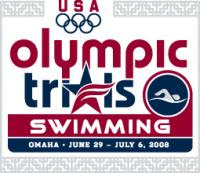So what is Beijing like? In fact, what is China like? Well, to be quite honest, I don't really know, seeing as how I haven't yet been there. However, China's role in the world is fascinating, and I'd like to take a brief tour of Chinese history and then take a look at what modern China (with particular emphasis on Beijing, obviously) is like.
4000 Years of Chinese History in Two ParagraphsChinese civilizations is one of the oldest in history, as Chinese history dates back to roughl

y 2100 B.C.E. The first recorded dynasty is the Xia Dynasty (don't worry! I'm not going to go through all the Chinese dynasties...), though historians debate whether or not it actually existed. We do know that the Shang dynasty did exist from about 1600 B.C.E. to 1100 B.C.E. in northeastern China. The first Chinese emperor ruled from 221 B.C.E. to 210 B.C.E., named Qin Shi Huang. He was the first to build the Great Wall, and also built the famous terra-cotta warriors (shown).
The Tang Dynasty is perhaps the high point of traditional Chinese culture. When the Mongols took over China, they formed the Yuan dynasty and made Beijing their capital. Later, the Ming dynasty established Beijing as its capital, and laid out the city in its current form. For periods totalling about 350 years between 1425 and 1825, Beijing was the world's largest city. Since then, Beijing has become China's cultural and historical (as well as political) capital and is now China's second largest city. The largest, Shanghai, has become the unofficial economic capital of China.
Modern ChinaThe past 100 years have been very tumultuous for the country of China. At the turn of the 20th century, China was severely weaked by western powers looking to exploit China for its own uses. The Boxer Rebellion and the Opium Wars greatly reduced the power of the once-strong Chinese government and strengthed the power of foreigners. Rebellion and revolution led by the Chinese leaders Sun Yat-Sen and Chiang Kai-Shek kept China in a state of political uncertainty, and the Communists forces in China who had once allied with Sun Yat-Sen were kicked out and sent on what became known as the long march. They reorganized in the 1930's under Mao Zedong.
In 1931, the Japanese invaded China, and weren't kicked out until 1945. There is still bitterness between the two countries over the atrocities committed against the Chinese people by the Japenese. Perhaps the most notable atrocity is "The Rape of Nanking", where 300,000 Chinese in Nanking were killed by the Japenese. After the Second World War, the Communists lead by Mao took over China, and Chiang Kai-Shek's government fled to Taiwan. To this day, that government claims to be the legitimate China (known as the Republic of China, as opposed to the People's Republic of China).
Mao established his government, and supported a total overhall of the status quo. The Great Leap Forward essentially reversed the classes, but had the unfortunate side effect of taking a step backward in agricultural output, causing famine and the death of 30 million Chinese between 1958 and 1961. During this time, China closed itself off to foreign investment (a fact that's certainly hard to believe, in light of everything that is "Made in China" that we see!).
1966 saw the start of the Cultural Revolution, which was nothing short of a dark period in Chinese history. It perhaps was the pinnacle of trying to achieve the egalitarian, communist society, but was so repressive that transportation and education came to a halt. Measures were instituted that took even high ranking government officials such as Deng Xiaoping out as counter-revolutionaries, changed stoplights so that "red" meant "go", and repression of traditional Chinese culture.
With the death of Mao in 1976, Deng Xiaoping took control of the Chinese go

vernment by 1980, and began opening up China to the rest of the world. The Chinese economy began to grow as foreign investment was brought back to China, and the quality of life in China began to drastically improve.
China TodayThe opening up of China is perhaps the beginning of the road to the 2008 Beijing Olympics. The Chinese government began in 1978 with a speech by Deng Xiaoping, who urged the government not to guide the country by ideology, but by facts and economic development. Since then, the Chinese economy has grown at an average of 9% a year--that means that every 8 years, it doubles! 400 million Chinese have moved out of poverty. That's a monumental change from the time of Mao.
Today, the 20 fastest growing cities in the world are all in China as people move to the large cities in Eastern China. For example, Chongqing expands by 300,000 people every year. This transformation is only accelerated by China's preparation for the Olympics. The world's largest airport terminal is in Beijing (it opened this past spring, and the area of Terminal 3 in Beijing Capital Airport is larger than that of the Pentagon). Beijing also has 6 new subway lines, a 43-kilometer light rail system, and a 12 square kilometer Olympic Park. Every international businessman has their own statistic regarding China and their brand new impact on the world.
China, a country of 1.3 billion people, has emerged as one of the biggest economies in the world, and is asserting itself as such. The Beijing Olympics are a testament to everything that it's done in the past 30 years, and everything it hopes to accomplish in the future. It is, in that light, a small wonder that China has done so much to make these Games absolutely perfect.
The measures it has taken are drastic. It has created the Beijing Weather Modification Office, armed with equipment and science to prevent it from raining during the Games--and
especially during the Opening Ceremonies. It has clamped down on giving out visas, in hopes of preventing dissidents from protesting sensitive issues like Tibet and Taiwan. It has taken 60% of the cars off the street and shut down hundreds of Beijing factories in order to halt pollution, something the International Olympic Committee has been worried about.
The Chinese GovernmentThe Chinese government controls the country in a one-party system of communism. It is now one of five communist countries in the world (along with Laos, Vietnam, Cuba, and North Korea. It is ironic that we had armed conflicts with three out of the five remaining communist countries specifically to stop the spread of communism). Political dissidents are silenced, and China has been repeatedly accused of human rights violations, especially with regards to Tibet. Officially, the Chinese government is

atheistic, but it recognizes certain religions organizations, while trying to suppress unrecognized religions. Clearly, the Chinese views the rights of its citizens slightly different than, say the United States, but before we reject their views, it is interesting to note that 86% of the Chinese say their country is moving in the right direction. Try finding 86% of Americans to agree on anything!
It certainly will be an interesting experience to see what Beijing has in store for us: elaborate gardens, an enormous airport terminal, brand new buildings such as the Bird's Nest, the Water Cube, the CCTV tower (pictured above), and the National Theater (also pictured). Who knows what the Chinese have in store for us? We have a little over a week to find out!!

 I'll start with the events, and I'll have links to even more pictures. Our first event was the women's 200m butterfly (along with the finals of the men's 200m breaststroke, the men's 100m freestyle, and the women's 4x100m free relay and the semifinals of the 200m IM).
I'll start with the events, and I'll have links to even more pictures. Our first event was the women's 200m butterfly (along with the finals of the men's 200m breaststroke, the men's 100m freestyle, and the women's 4x100m free relay and the semifinals of the 200m IM).





















